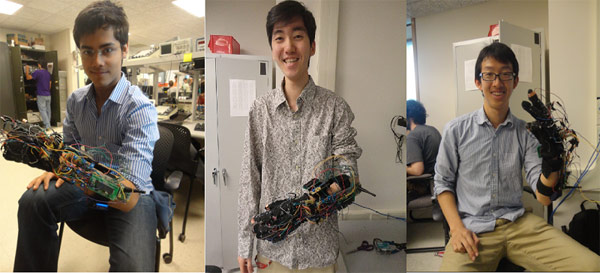Reply To:
Name - Reply Comment

By far one of the greatest challenges of sign language has been to translate it for everyday folk that wouldn't know where to begin a conversation with the deaf. Cornell University engineering students Ranjay Krishna, Seonwoo Lee and Si Ping Wang -- along with some help from Jonathan Lang -- used their final project time this past semester to close this gap in one of the more practical solutions we've seen to date. Their prototype glove uses accelerometers, contact sensors and flex sensors to translate complex finger gestures from the American Sign Language alphabet into spoken letters: after converting hand positions to digital signals, the test unit both speaks out the resulting letters and sends them to a computer, where they can be used for anything from a game (shown in the video below) to, presumably, constructing whole sentences. Along with being accurate, the Cornell work is even designed with a mind towards how it would work in the real world, as the glove and its transmitter are both wireless and powered by 9-volt batteries. We hope that the project leads to a real product and an extra bridge between the deaf and the rest of us, but in the meantime, we'll be happy that at least one form of powered glove is being put to the noblest use possible.
(Source :www.engadget.com)